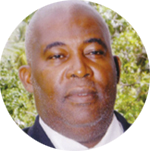
WELCOME students to another week in the Open School for the Second term for the academic or school year 2022 to 2023. The school is open to parents, guardians, teachers, students and members of the public. It is my hope that students will acquire knowledge and skills which will enable them to improve student achievement in Mathematics.
Today’s lesson is the second in the series “Improving student achievement in Mathematics.” At the end of the lesson, students will be able to tell: (1) What opportunities should students be given in the teaching and learning situation? (2) What can students learn while learning new concepts in Mathematics?
In reviewing the first lesson, we should have understood that teachers and facilitators of learning must provide the opportunity for students to learn Mathematics. The extent of the students’ opportunity to learning Mathematics content bears directly and decisively on student achievement in Mathematics.
The second very important aspect on the teaching of Mathematics that I focussed on was that teachers and facilitators of learning must focus on meaning.
The third principle I wish to focus on in today’s lesson is that: Learning new concepts and skills while solving problems.
Now when I attended Primary School, several decades ago, there was a focus on two aspects of the teaching of Mathematics by classroom teachers: Accuracy and Problems or Problem Solving. When I became a classroom teacher I recognized that what was referred to as accuracy was really “Computational Skills”. That is the teacher would give some figures on the board and the student was required to use the four rules to arrive at the answer. By the fours rules I mean, Addition, Subtraction Multiplication and Division.
I later discovered that those two aspects could be taught together and not separately.
Research in Mathematics suggests that students can learn both concepts and skills by solving problems. Indeed, there is evidence that students can learn new skills and concepts while they are working out solutions to problems.
Well, as a classroom teacher I always have examples up my sleeves. Let me give you an example:
And a very simple one. The teacher writes the results of Troy’s results in an end of term first test as follows: 70, 45, 65, 80, 50. Find his average score.
Now clearly the mathematical concept is averages. And the teacher may have done a few examples on the board and gave the students an example to try.
What the research is telling us, is that the teacher could have given the students a word problem on the concept of averages as follows:
Troy obtained the following grades at the end of his first term test; English Language, 70 marks; Mathematics, 45 marks; Health Science, 65 marks; Social Studies, 80 marks; and General Science, 50 marks. What was his average score in the test?
Now two main computational skills come into play here. Addition of two digit whole numbers, and division. The students would be taught that they should add all the individual scores and divide the total score by the number of scores. Now the total is 310. Now the accuracy comes in because if they are not accurate, they may not bring forward the 1 ten from the ones column and get 300 instead of 310. Then the average would be 60 marks instead of 65 marks.
Now the computation of the average would be 310 divided by 5 groups of scores. Therefore the students would have used addition and division to arrive at the answer.
Interestingly, the students would be bringing the use of English Language into the problem solving exercise, since there is the opportunity to read the problem and to understand the question. In problem solving, the outcome is just as important as the process. And language plays a very important part!
The other principle I want to dwell on is: Giving students both an opportunity to discover and invent new knowledge and an opportunity to practise what they have learned, improves student achievement. Students need the opportunity to practice what they are learning and to experience performing the kind of tasks in which they are expected to demonstrate their competence.
Let us return to the problem solving exercise. After the lesson, students would be given exercises to do both in class and at home, as homework. The students would discover a few things. (a) that adding the first two scores, the second two scores and the fifth score mentally would enable them to arrive at the total more quickly; (b) multiplying the average score by the groups of scores would give the total score. That is 62 marks multiply by 5 groups of scores would give the total score.
One should not be surprized if a student attempted to formulate his or her own problem. For example, Daren Sammy scored a century in his first test match, a double century in in his second, one-and- a half century in his third, triple centuries in his fourth test match and missed the fifth test match because of injuries. What is his average in the matches which he played?
Inclusion I wish to say clearly, that a balance is needed between the time students spend practising routine procedures and the time which they devote to inventing and discovering. Although students need an opportunity to both practice and invent, there must be a balance which would give them the opportunity to interact in other subject areas.
Now two questions for you. (i) What can students learn while learning new concepts in Mathematics?
(ii) What opportunities should students be given in the teaching learning situation?









